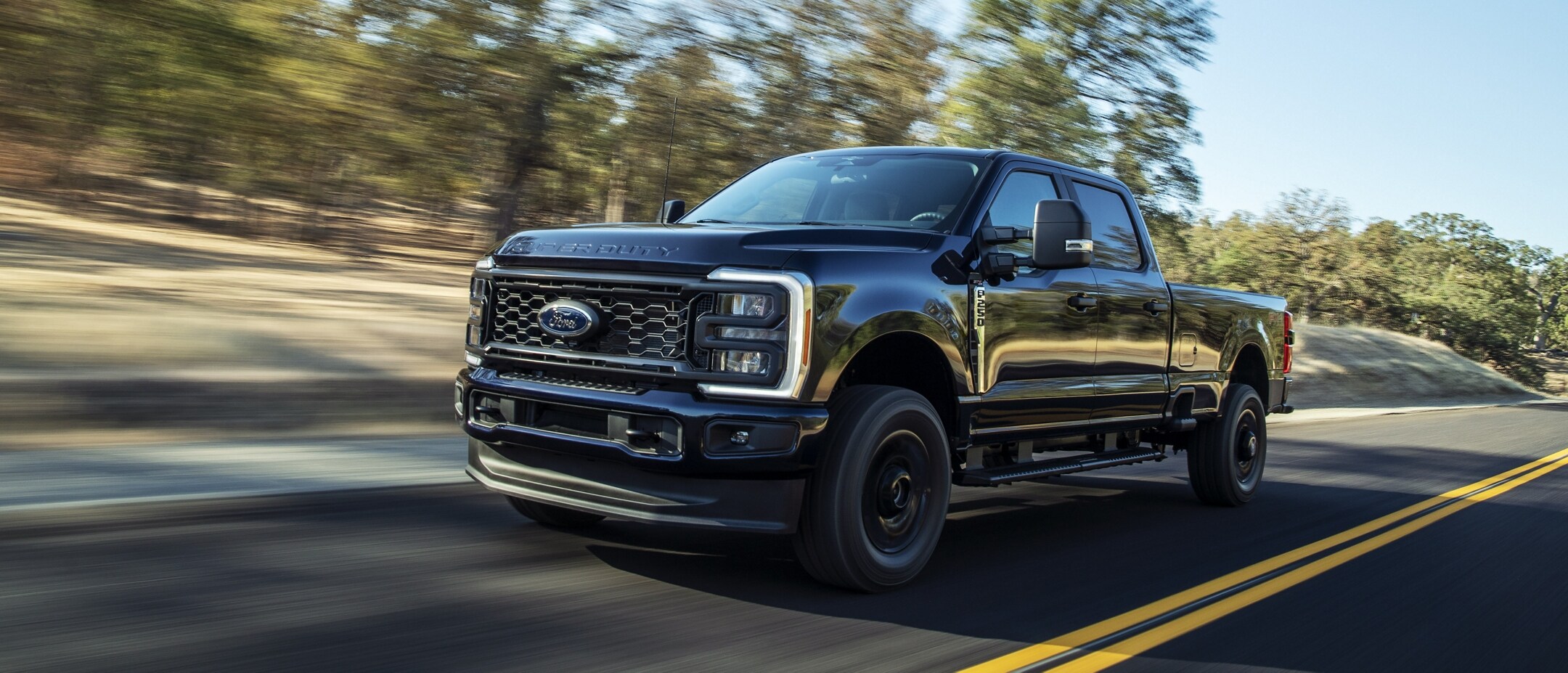Towing can be tricky if you don’t have the right vehicle. Whether you’re pulling a camper, trailer, or boat, your vehicle needs enough power, balance, and strength to handle the extra weight safely and smoothly on the road.
Some vehicles are made for towing and come with powerful engines, strong frames, and helpful features like trailer sway control. These vehicles are trusted by drivers who need to tow heavy loads for work or travel.
On the other hand, some vehicles look capable but perform poorly when it comes to towing. They might have weak engines, small bodies, or bad balance, which can lead to trouble on the road when pulling extra weight.
Knowing which vehicles are good for towing can save you from stress, repairs, and even accidents. A strong tow vehicle gives you confidence, especially on long drives, rough roads, or steep climbs with a trailer in tow.
People often choose full-size trucks or large SUVs for towing because they are designed to pull more weight. These vehicles have better towing ratings, stronger axles, and bigger brakes to handle heavy-duty tasks with ease.
However, some smaller vehicles and even some midsize SUVs are often pushed beyond their limits. Drivers may assume they can tow just because the vehicle is large, but size doesn’t always mean strength.
It also points out five vehicles that often disappoint when used for towing. They may be good for daily driving, but towing with them can lead to problems like engine strain, poor handling, or even damage.
5 Reliable Towing Vehicles
If you’re planning to tow something heavy, it’s smart to pick a vehicle built for the job. This guide will help you choose wisely and avoid making a costly mistake when it comes to towing.
1) Ford F-250 Super Duty
The Ford F-250 Super Duty is one of the most trusted trucks in America when it comes to towing heavy loads. It’s known for its powerful performance, strong build, and long-lasting reliability, especially for drivers who haul often.
This truck is designed to handle tough work, whether it’s for farming, construction, or hauling trailers across long distances. With its available diesel engine, it gives strong pulling power and good fuel efficiency for its size.
When properly equipped, the Ford F-250 can tow up to 20,000 pounds. That makes it perfect for those who need to tow large boats, RVs, work equipment, or livestock trailers with ease.
Its heavy-duty frame and suspension help keep the ride smooth and stable even under heavy load. Many drivers say they feel in full control, even when towing on highways, hills, or rough roads.
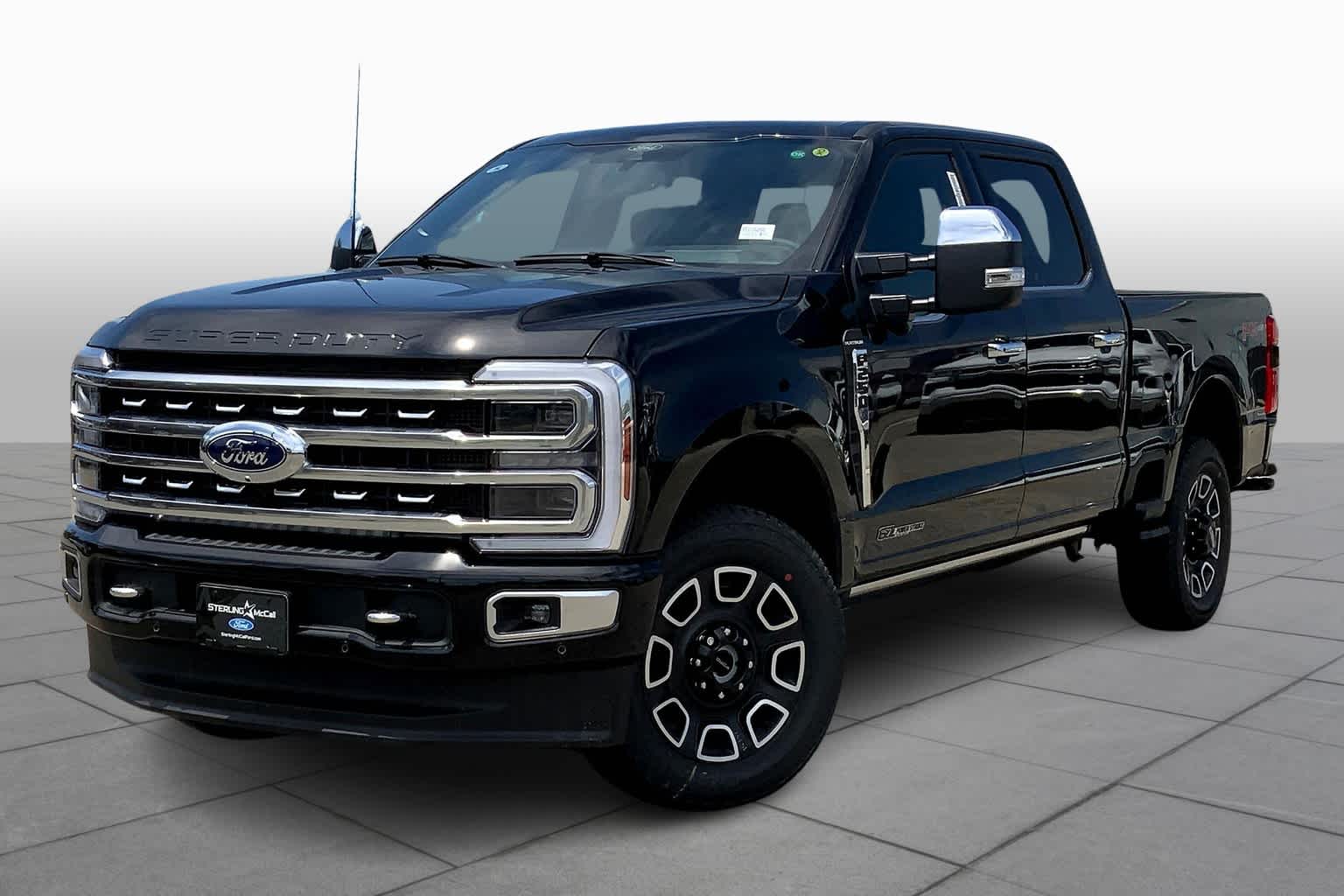
The Super Duty lineup offers different engine choices, including powerful V8 gas and turbo diesel options. The 6.7-liter Power Stroke V8 turbo diesel is the most popular for serious towing needs.
Ford also includes smart towing features to make the job easier. It offers trailer sway control, an integrated trailer brake controller, and available camera views to help with hitching and backing up.
Inside the cabin, the F-250 offers comfort and modern tech, which helps reduce stress on long trips. You’ll find plenty of room, strong air conditioning, and smart features like Apple CarPlay and navigation.
Ford’s reputation for building strong trucks plays a big role in the F-250’s popularity. It’s often used in professional fleets, ranches, and by families who tow large campers for vacations.
If you need a truck that can handle big jobs without giving up comfort or control, the Ford F-250 Super Duty is a reliable choice. It has the muscle and technology to make towing safer and easier every time.
Also read: 5 Reliable Cars for Rideshare Work and 5 That Hurt Your Ratings
2) Chevrolet Silverado 2500HD
The Chevrolet Silverado 2500HD is a powerful truck built to handle big towing tasks with ease. It’s a favorite among people who need a reliable and tough vehicle for work or travel.
One of its biggest strengths is its high towing capacity, which makes it perfect for pulling trailers, boats, and heavy loads. When properly set up, it can tow over 18,000 pounds, depending on the model and equipment.
Under the hood, the Silverado 2500HD offers the trusted Duramax 6.6-liter turbo-diesel V8 engine. This engine is paired with an Allison 10-speed automatic transmission that helps it tow smoothly and efficiently.
The Duramax diesel is known for being both strong and reliable, with plenty of torque to handle steep roads or heavy trailers. It also offers good fuel economy for a heavy-duty truck, especially during long hauls.
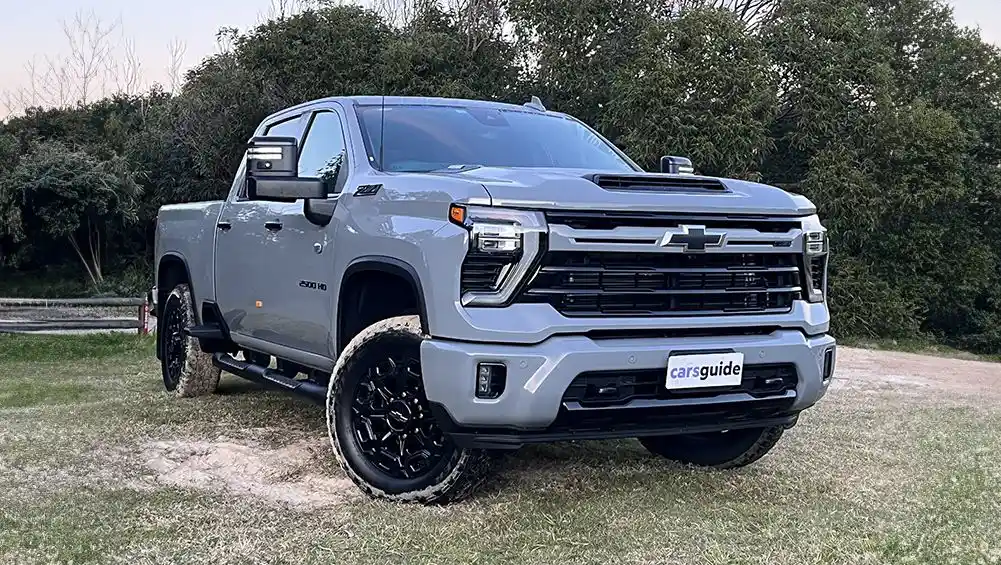
This truck doesn’t just offer power—it’s also designed for comfort and control while towing. The ride feels smooth, even when loaded, thanks to its strong suspension and well-balanced frame.
Chevrolet includes smart towing technology to make things easier for the driver. Features like trailer sway control, hill start assist, and up to 15 different camera views help with safety and visibility.
Drivers also get the benefit of an advanced trailering system with built-in checklists and reminders. This helps make sure the trailer is safely connected before hitting the road.
Inside the cabin, the Silverado 2500HD offers a quiet ride and useful tech. It includes options like heated seats, navigation, smartphone connectivity, and a spacious interior for long trips.
People trust this truck not just for its power, but for its dependability over the years. Whether for personal use or as part of a work fleet, it’s built to last and perform under pressure.
If you’re looking for a heavy-duty towing vehicle that combines strength, comfort, and smart features, the Silverado 2500HD is an excellent choice. It’s made to do the job right, every single time.
3) Ram 2500
The Ram 2500 is a strong and capable truck made for heavy-duty towing jobs. It’s a top choice for people who need power, control, and comfort while pulling big loads.
One of its best features is the available 6.7-liter Cummins turbo diesel engine. This engine gives the truck strong pulling power and plenty of torque for handling steep hills or heavy trailers.
The Cummins engine is well-known for its durability and long life, especially under tough working conditions. It’s trusted by both personal users and professionals who travel often.
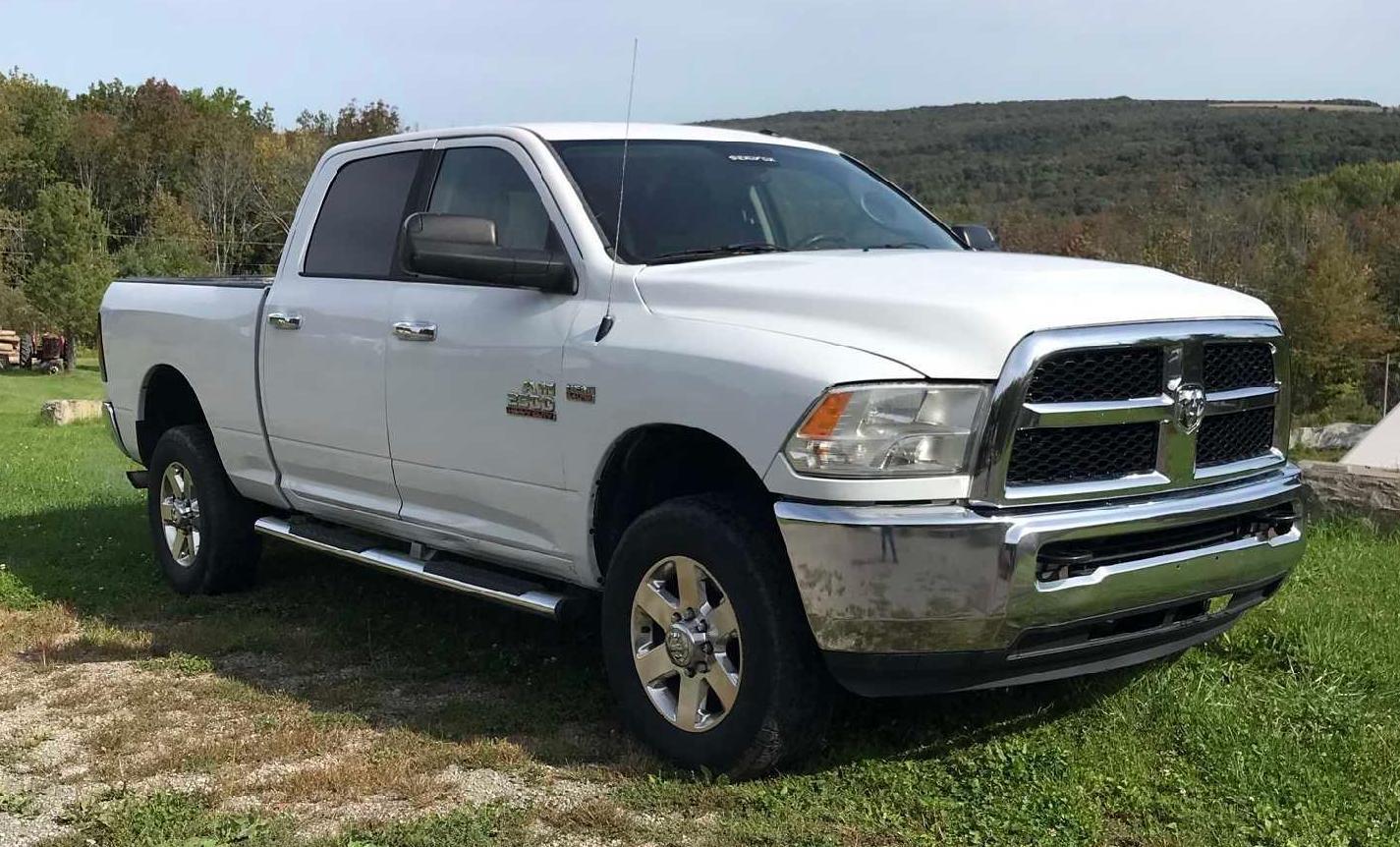
When properly equipped, the Ram 2500 can tow up to around 20,000 pounds, depending on the model and setup. That makes it perfect for hauling campers, boats, or construction equipment.
The Ram 2500 also includes helpful features that make towing safer and easier. It has trailer sway control, which helps keep the trailer steady during windy or rough driving conditions.
Another smart feature is the available rear air suspension system. This system keeps the truck level when loaded and improves ride comfort and balance while towing.
Ram also offers a tow/haul mode that adjusts the transmission for better performance when pulling weight. It makes driving with a trailer smoother and easier on the engine and brakes.
Inside, the Ram 2500 is surprisingly comfortable for a heavy-duty truck. It offers roomy seating, modern tech, and quiet rides, which is great for long trips with a trailer in tow.
The interior includes useful tools like an advanced trailer brake controller and backup assist cameras. These make hitching up and parking much easier, even for beginners.
If you’re looking for a truck that blends raw towing power with smart, easy-to-use features, the Ram 2500 is a great pick. It’s tough, reliable, and designed to make towing a lot less stressful.
4) Toyota Land Cruiser: A Rugged SUV That Tows with Confidence
The Toyota Land Cruiser is known for its tough design and off-road skills, but it’s also great at towing. This large SUV can handle both adventure and work, making it a smart choice for many drivers.
One of the key reasons the Land Cruiser tows so well is its strong V8 engine. This powerful engine gives it the muscle needed to pull trailers, boats, or campers without struggling.
Along with its engine, the Land Cruiser comes with a full-time four-wheel-drive (4WD) system. This system helps keep the vehicle steady and safe, even on slippery or uneven roads.
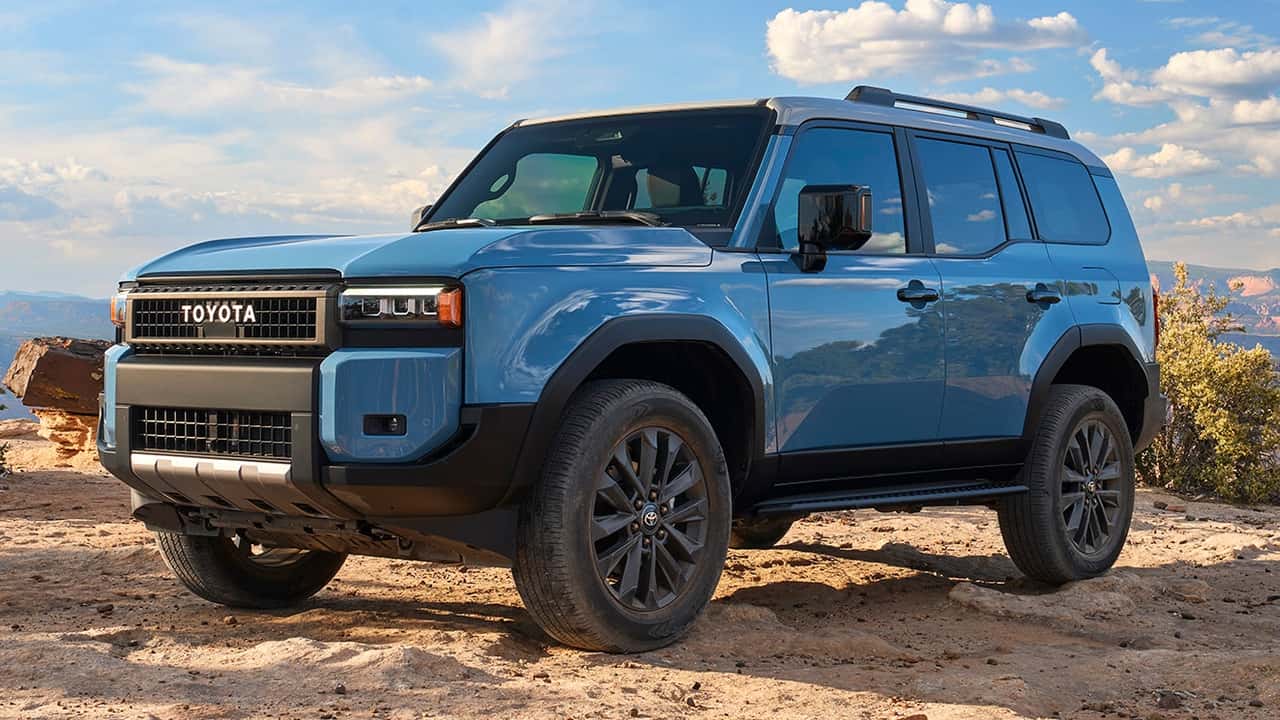
The Land Cruiser’s towing capacity is around 8,100 pounds, which is enough for most medium-size trailers. It handles the extra weight smoothly, whether you’re driving through the city or on mountain roads.
Toyota designed the Land Cruiser with a strong frame and solid build quality. This makes it stable and less likely to sway when towing, which adds to driver confidence.
Many people like the Land Cruiser because it offers both comfort and strength. You can take it off-road or tow a trailer, all while enjoying a quiet and smooth ride inside.
Inside the cabin, it has leather seats, advanced safety systems, and easy-to-use controls. These features make long towing trips more relaxing for both the driver and passengers.
It also includes useful tech like trailer sway control and a smart traction system. These tools help the SUV stay in control, even if the trailer starts to shift while moving.
The Land Cruiser has been trusted by drivers around the world for decades. Its strong reputation is built on reliability, toughness, and the ability to perform in many situations.
If you want an SUV that can tow heavy loads and still go off the beaten path, the Toyota Land Cruiser is a perfect fit. It offers power, control, and comfort in one tough package.
5) GMC Yukon XL: Comfort Meets Towing Strength for Family Adventures
The GMC Yukon XL is a full-size SUV that offers a great mix of power and comfort. It’s perfect for families who need to tow trailers, boats, or campers while enjoying long trips in a spacious vehicle.
This SUV can tow over 8,000 pounds when properly equipped. That’s more than enough for most travel trailers, making it a dependable option for vacations or weekend getaways.
Under the hood, the Yukon XL comes with powerful engine choices, including a 6.2-liter V8. This engine gives it strong towing ability and smooth performance, even when pulling heavy loads.
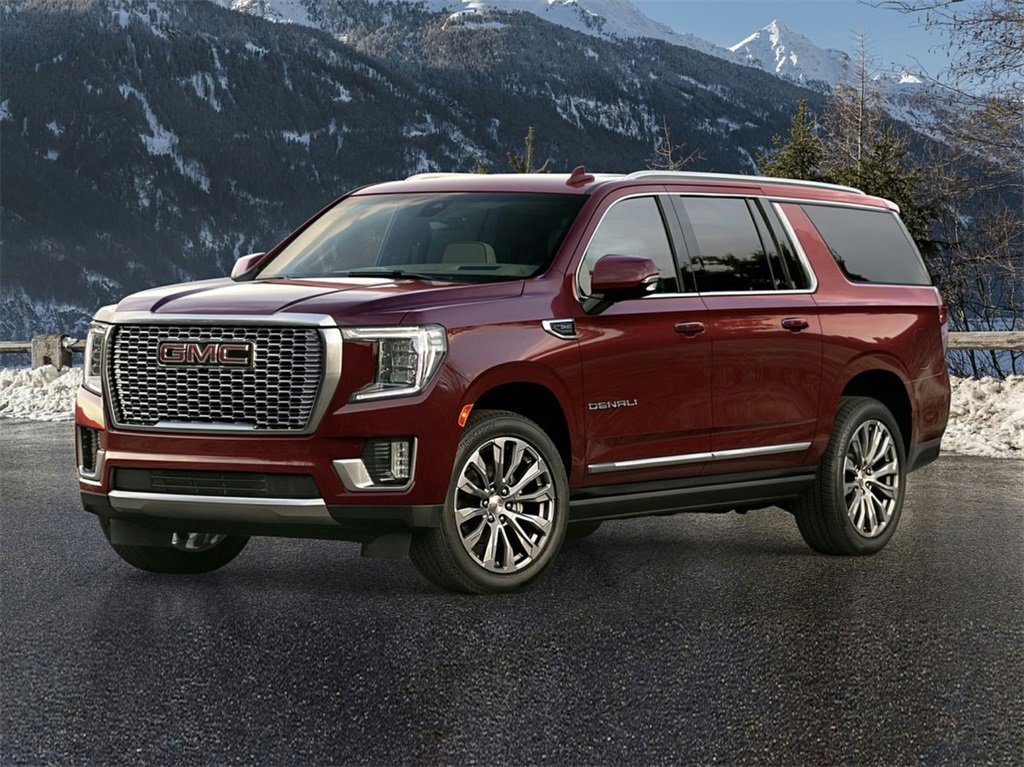
Its size also helps provide balance and control while towing. The long wheelbase gives it better stability, especially at higher speeds or on curvy roads.
One of the standout features of the Yukon XL is its roomy interior. It has three rows of seats and lots of cargo space, so passengers and gear fit in comfortably.
Families love this SUV because it can carry many people and still tow with ease. It’s ideal for road trips, camping, or pulling a boat to the lake for a fun weekend.
GMC also includes helpful towing tools in the Yukon XL. Features like trailer sway control, a trailer brake controller, and hitch guidance assist the driver when towing.
The ride inside the Yukon XL is smooth and quiet, even with a trailer behind it. The SUV is built for comfort, with soft seating, climate control, and entertainment options for passengers.
Advanced safety systems like blind spot alerts and rear cross-traffic warnings add confidence while driving. These tools make it easier to handle the larger size of the SUV, especially with a trailer.
If you’re looking for a family-friendly SUV that doesn’t hold back when it’s time to tow, the GMC Yukon XL delivers both power and space. It’s a strong and smart choice for anyone who needs both comfort and towing strength.
Also read: 5 Vehicles That Can Take a Beating and 5 That Break Too Easily
5 Towing Disasters
Towing might seem straightforward—hook up, drive off, and get the job done. But when things go sideways, they really go sideways.
From overloaded trailers and failed hitches to outright reckless driving, towing disasters can quickly turn into chaotic, costly, and even dangerous situations.
Whether you’re an experienced hauler or just hitching up for the first time, these five real-world towing fails serve as brutal reminders of what can happen when caution, prep, or common sense get left behind. Buckle up—this isn’t your average towing tutorial.
1) Jeep Wrangler (2-Door): Fun Off-Road, But Not Built for Towing
The Jeep Wrangler is a legendary off-road vehicle known for its rugged design and ability to tackle tough trails. However, when it comes to towing, it falls short, especially for heavy loads.
The 2-door version of the Jeep Wrangler has a short wheelbase, which can make it unstable when pulling anything more than light loads. This short length means the vehicle lacks the stability needed for towing heavy trailers or boats.
Its towing capacity is also quite limited, with a maximum tow rating of around 2,000 pounds. While this is fine for small utility trailers, it’s not enough for larger, heavier loads like campers or boats.
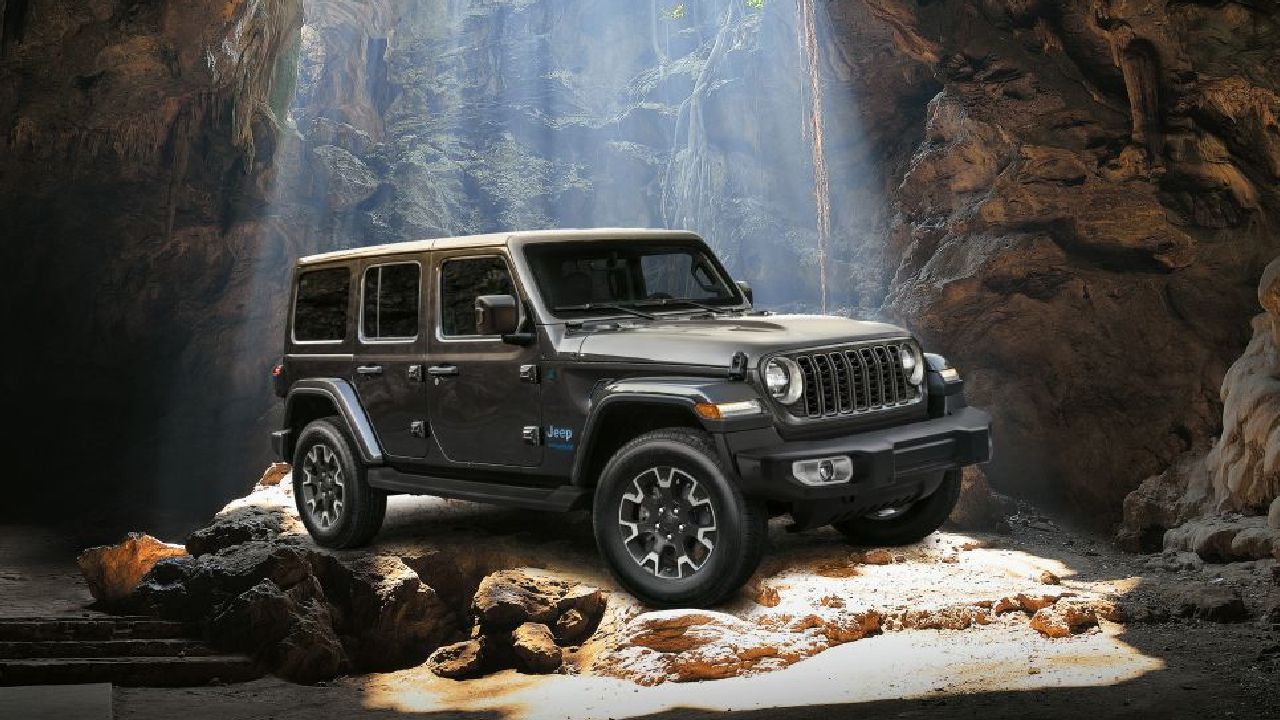
The small size and short wheelbase can lead to a bumpy ride and difficulty handling heavy trailers. Towing something beyond its weight limit can cause the vehicle to sway, putting extra strain on the engine and brakes.
Jeep designed the Wrangler to be an off-road warrior, not a heavy-duty hauler. Its true strength lies in its ability to climb rocks, cross streams, and navigate through rough terrain, not in towing.
For people who love to tow light loads, like small jet skis or basic utility trailers, the Wrangler can still get the job done. However, it’s not a practical choice for frequent towing or long trips with heavy trailers.
If you want a vehicle for serious towing, the Wrangler isn’t the right option. It’s better suited for off-road adventures where towing isn’t a primary need.
For those looking for a vehicle that combines both off-road fun and towing capacity, a larger SUV or truck would be a better choice. While the Wrangler shines in many areas, towing heavy loads just isn’t one of them.
2) Subaru Outback: Reliable for Daily Driving, But Not for Serious Towing
The Subaru Outback is a popular choice for drivers who want a reliable and comfortable vehicle for everyday use. It’s known for its all-wheel-drive system, good fuel economy, and practical features that make it great for commuting and weekend trips.
However, when it comes to towing, the Outback isn’t built to handle large or heavy loads. While it can tow up to around 2,700 to 3,500 pounds, that’s still on the lower end for towing vehicles and limits what you can safely pull.
For comparison, larger trucks and SUVs can tow much more, with some capable of pulling upwards of 8,000 pounds or more. The Outback’s body-on-frame design is also a major factor in this, as it lacks the heavy-duty structure that’s necessary for more demanding towing tasks.
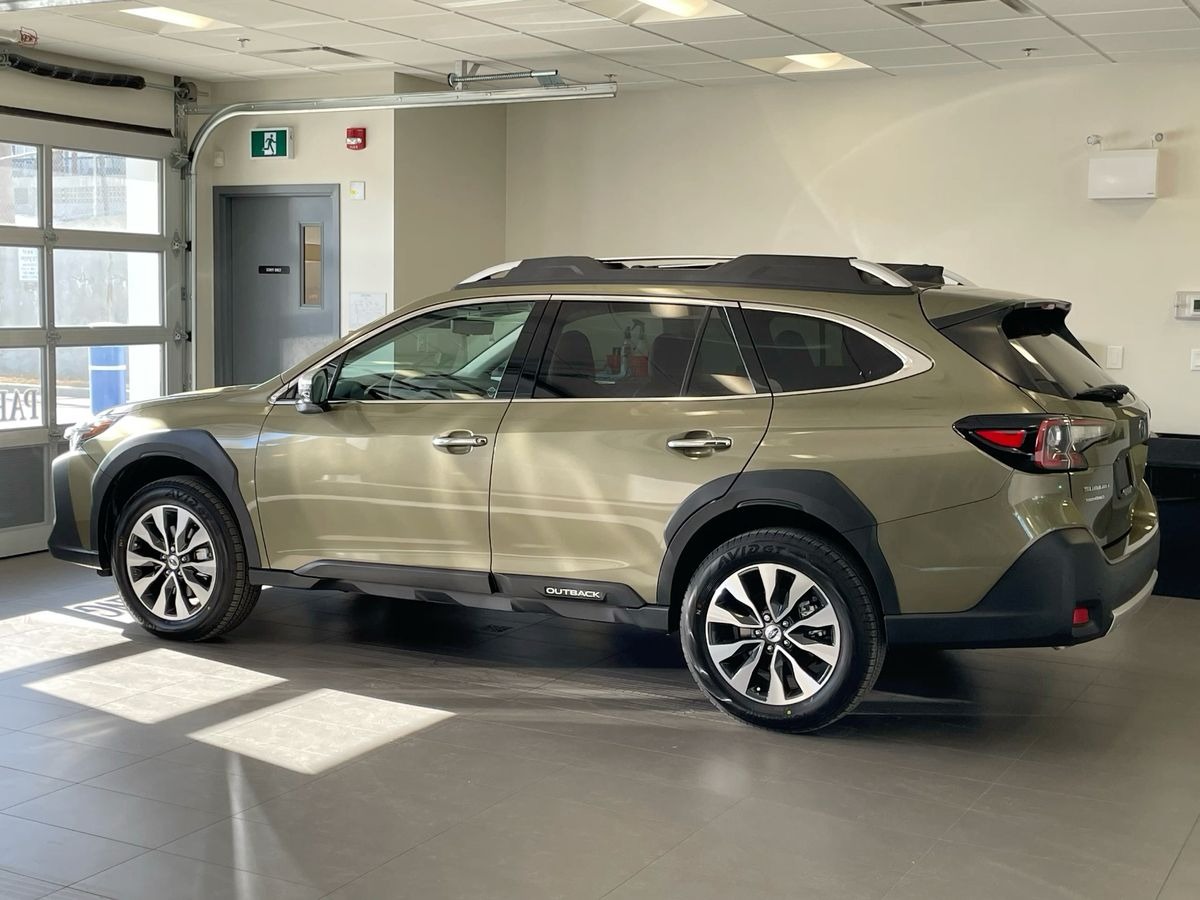
This vehicle is better suited for lighter towing jobs, such as pulling small trailers, jet skis, or light campers. If you need to tow something bigger, like a large boat or heavy camping gear, the Outback’s engine and frame may struggle to provide enough strength.
Another thing to consider is that the Outback is not as stable when towing heavier loads. It lacks the size and power of a full-sized truck or SUV, meaning it may not handle large trailers as smoothly on highways or steep roads.
For those looking for a versatile car that can occasionally tow light items, the Outback is a fine choice. It’s perfect for people who mainly use their car for daily driving and occasional light towing, but it’s not a workhorse for bigger jobs.
If towing is a significant part of your needs, it’s better to consider a vehicle specifically designed for that purpose. The Subaru Outback is a fantastic daily driver but falls short when it comes to heavy-duty towing tasks.
3) Ford Explorer (Older Models): Towing Troubles in the Past
The Ford Explorer has been a popular SUV for many years, known for its comfort and versatility. However, some older models of the Explorer had issues when it came to towing, making them less reliable for pulling heavy loads.
One of the main problems with these older Explorers was the transmission. Many of these vehicles had transmission problems that made towing difficult, especially with larger trailers or boats. These issues would often cause the engine to struggle, leading to overheating or poor performance during towing.
In addition to the transmission problems, older Ford Explorers were also not designed for heavy-duty towing. They didn’t have the same towing capacity or strong frame that newer models and full-sized trucks offer, which limited their ability to handle larger loads.
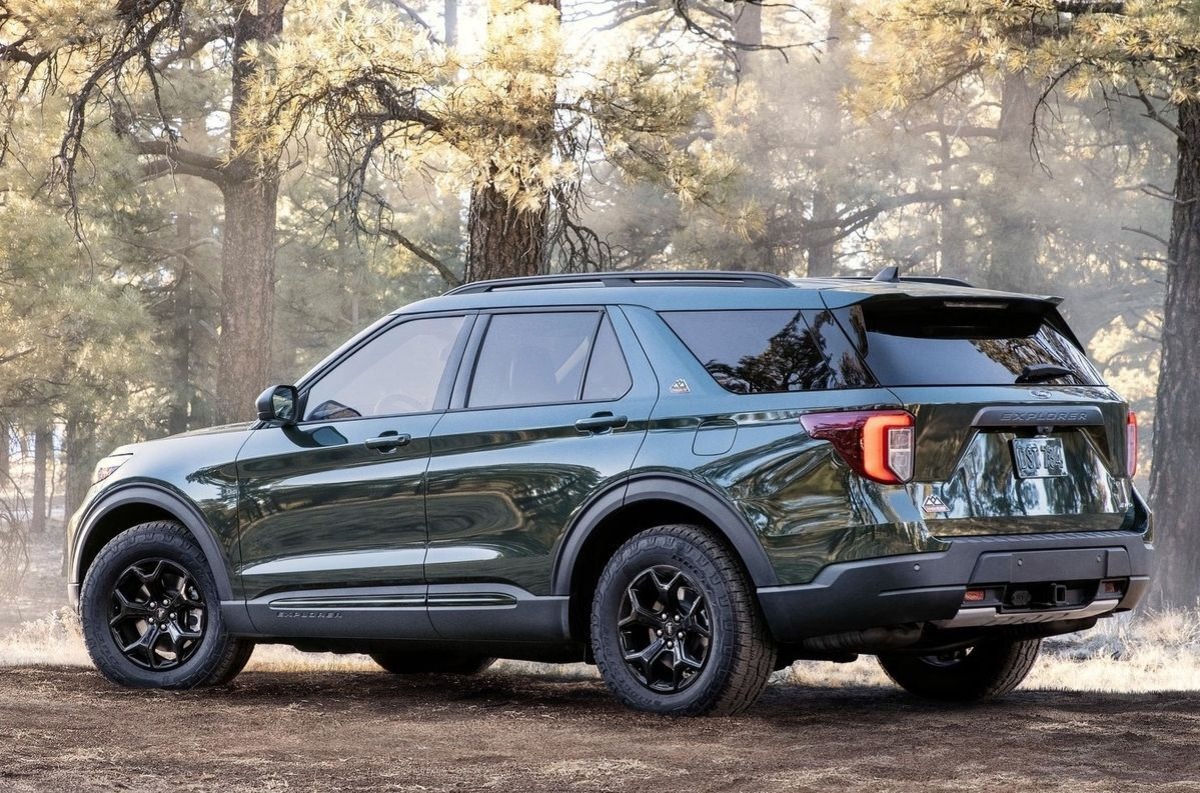
Trailer sway was another issue that drivers faced with older Explorers when towing. The lack of stability and power delivery meant that trailers could become unstable, especially on highways or in windy conditions, making long-distance hauling risky.
Because of these problems, older Ford Explorers were not the best choice for those who needed to do a lot of towing. They were more suitable for light-duty jobs, like hauling small utility trailers, but couldn’t handle heavy loads over long distances.
Today, newer Ford Explorers have addressed many of these issues, offering better towing capacity and more reliable performance. However, if you own or are considering an older model, it’s important to be aware of these potential towing challenges.
For those who need an SUV for regular towing, it might be wise to look at more recent models or vehicles specifically built for heavy-duty towing. While older Explorers were great for many uses, towing heavy loads wasn’t one of their strengths.
4) Honda CR-V: Great for Families, But Not for Towing Heavy Loads
The Honda CR-V is a popular compact SUV known for its reliability, comfort, and family-friendly features. It’s an excellent choice for daily driving, running errands, and weekend trips, offering good fuel efficiency and a smooth ride.
However, when it comes to towing, the CR-V isn’t the best option. With a towing capacity of around 1,500 pounds, it’s only suited for light loads such as small trailers or lightweight boats.
This limited towing ability makes the CR-V a poor choice for those who need to haul larger trailers or heavy-duty equipment. Trying to tow anything beyond its rated capacity can lead to significant issues, especially with the engine and brakes.
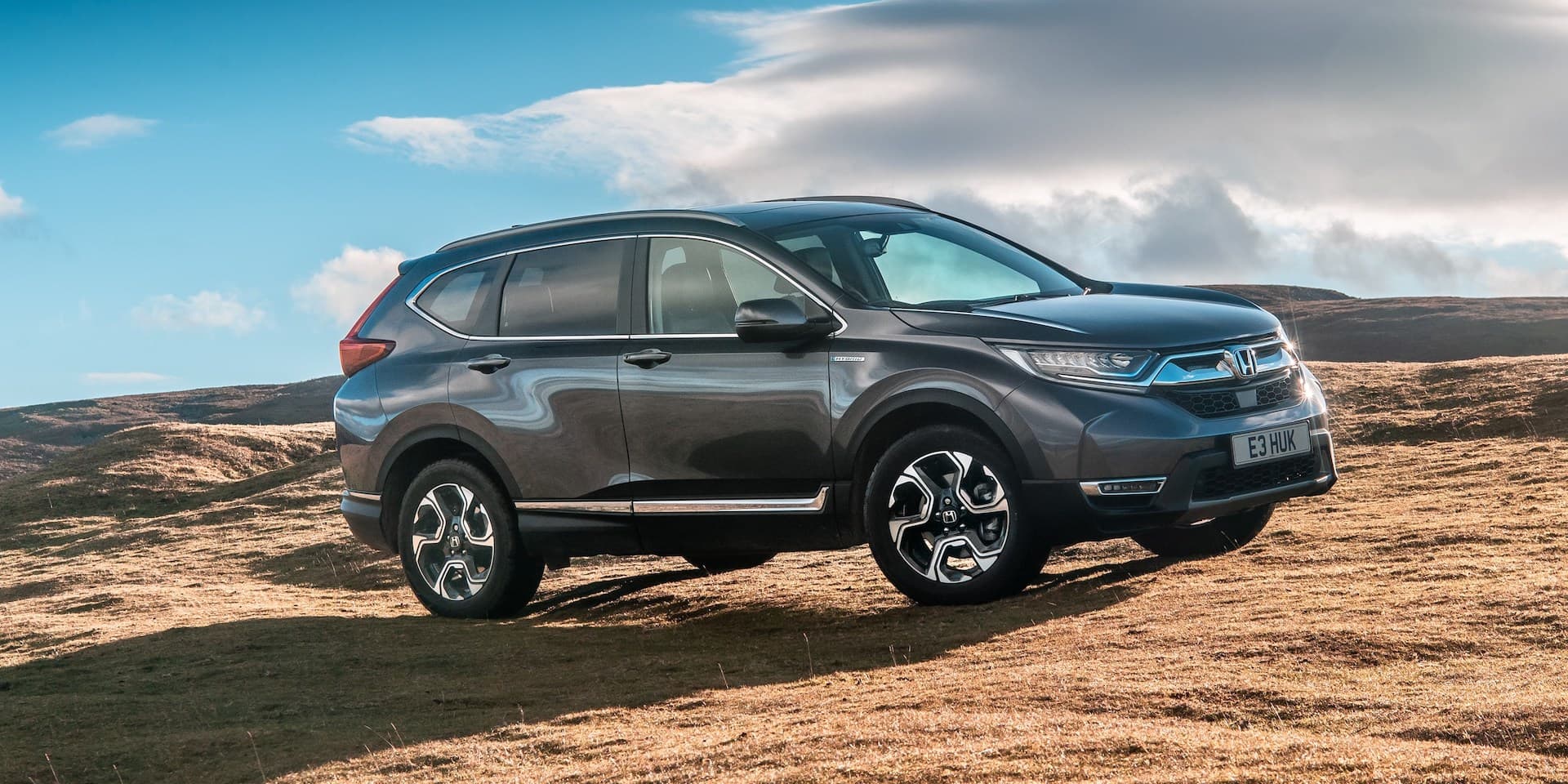
When the CR-V is pushed beyond its towing limit, it can experience engine strain, which can cause overheating or a decrease in performance. This added strain puts unnecessary stress on the vehicle’s powertrain, which isn’t designed for heavy hauling.
Braking can also become a problem when towing too much weight. The CR-V’s braking system is not built to handle the added load of heavy trailers, which could result in longer stopping distances and reduced safety while driving.
For families looking for a vehicle that can occasionally tow small items, the CR-V is perfectly fine. It’s ideal for pulling lightweight gear like bicycles, kayaks, or small utility trailers.
However, if you regularly need to tow larger items like campers or boats, the CR-V won’t be the right fit. It’s better suited for people who don’t rely on towing as part of their regular driving needs.
For those who need both towing power and family-friendly features, it’s best to consider a larger SUV or truck designed for the job. The Honda CR-V offers comfort and practicality, but towing heavy loads is not its strength.
Also read: 5 Cars That Are Reliable Even When Neglected and 5 That Demand Attention
5) Nissan Pathfinder (CVT Models): Towing Troubles with CVT Transmissions
The Nissan Pathfinder is a family-friendly SUV that has been praised for its spacious interior and strong performance. However, newer models equipped with continuously variable transmissions (CVTs) have had significant issues when it comes to towing.
CVTs are designed to provide smoother driving experiences, but they don’t always hold up well under heavy loads. In the case of the Pathfinder, the CVT tends to overheat quickly when towing, especially with anything more than light loads.
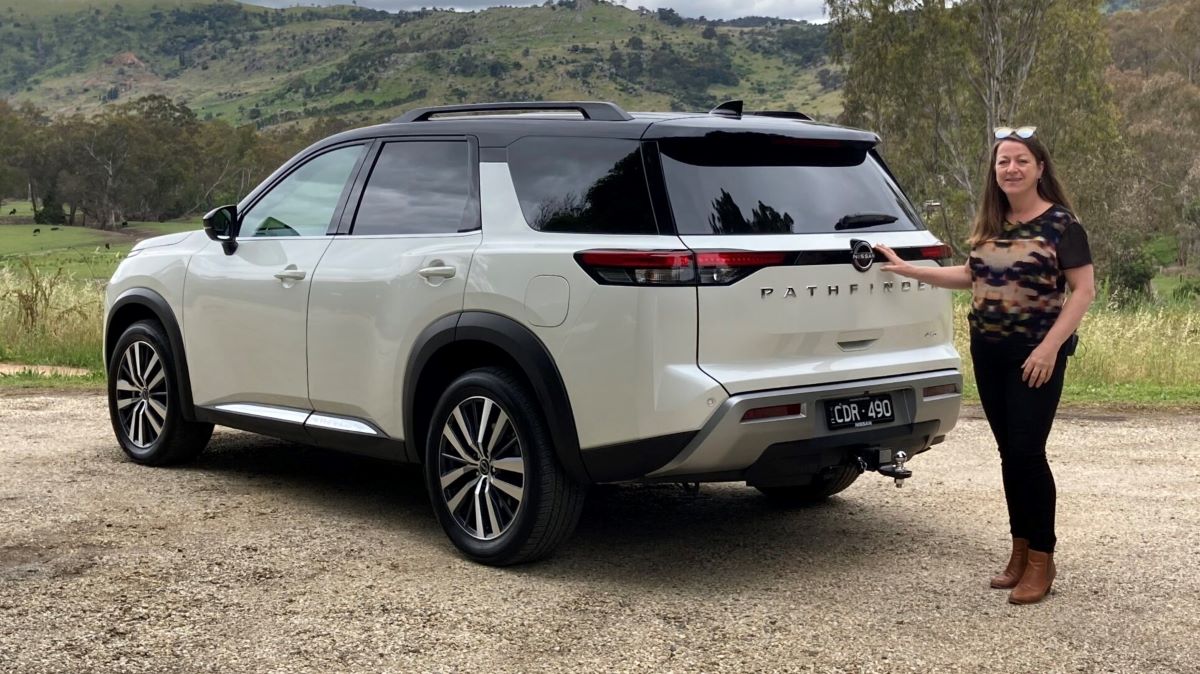
When a CVT overheats, it can cause the vehicle’s performance to suffer. The engine loses power, and the transmission becomes less responsive, leading to a frustrating driving experience when pulling a trailer or boat.
The main issue with CVT models of the Pathfinder is that they are not built to handle the stress of towing. These transmissions wear out faster when towing, which means the vehicle could face costly repairs if used for heavy-duty hauling.
If you try to tow anything beyond the vehicle’s basic capacity, like a larger camper or a heavy trailer, the CVT will likely struggle. This puts extra strain on the vehicle’s powertrain, reducing its lifespan and making long trips difficult.
While the Pathfinder is a great SUV for family outings, it’s not the best choice for those who need to tow regularly. The CVT models simply don’t have the strength and durability needed for more demanding towing jobs.
For people who want a Pathfinder but plan to tow, it’s better to choose a model with a traditional automatic transmission. These versions are much more capable of handling the weight and stress of towing without risking overheating.
If towing is a major part of your driving needs, you may want to consider a different SUV or truck. The Nissan Pathfinder with a CVT is not built to handle the demands of serious towing.

